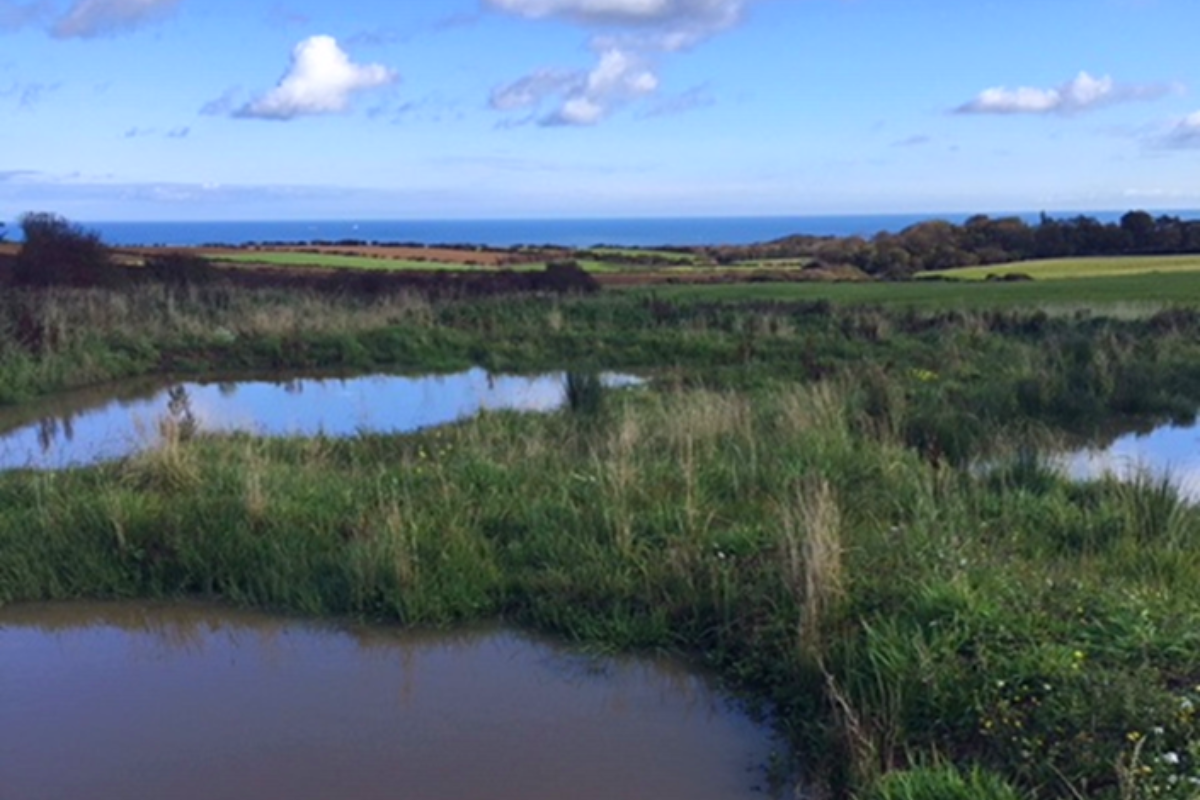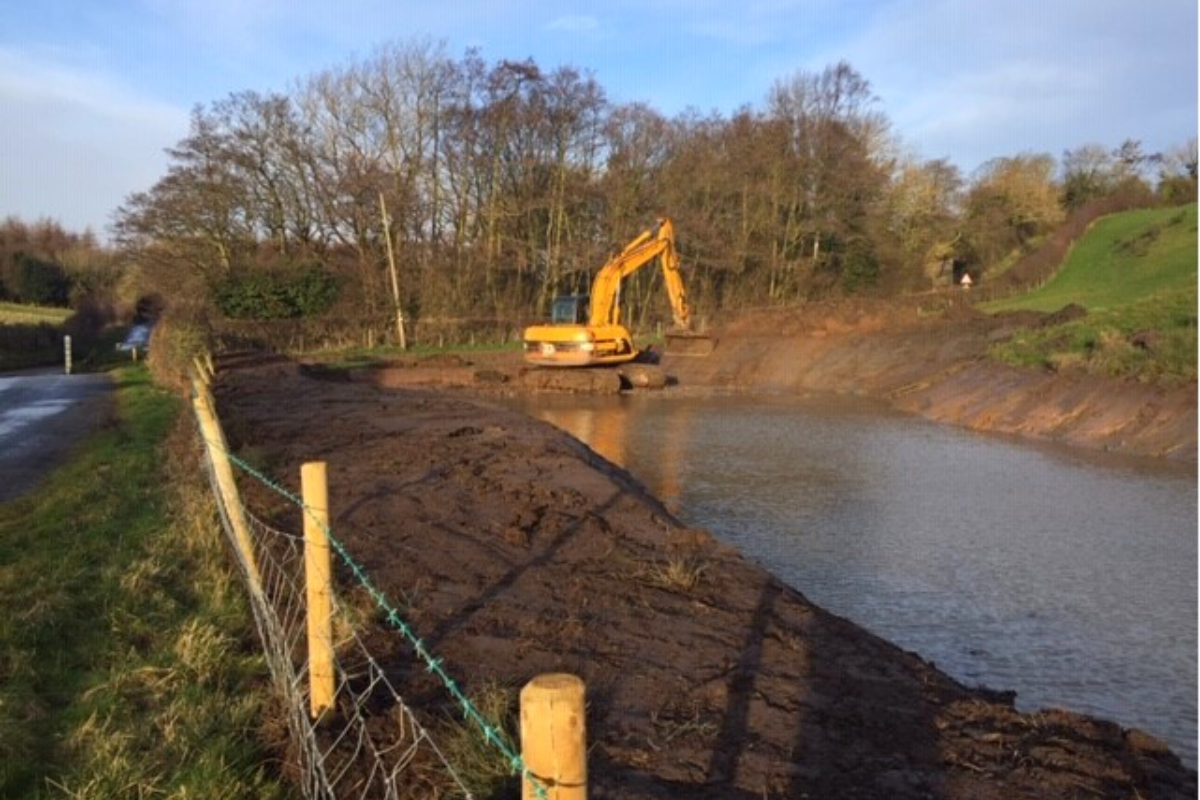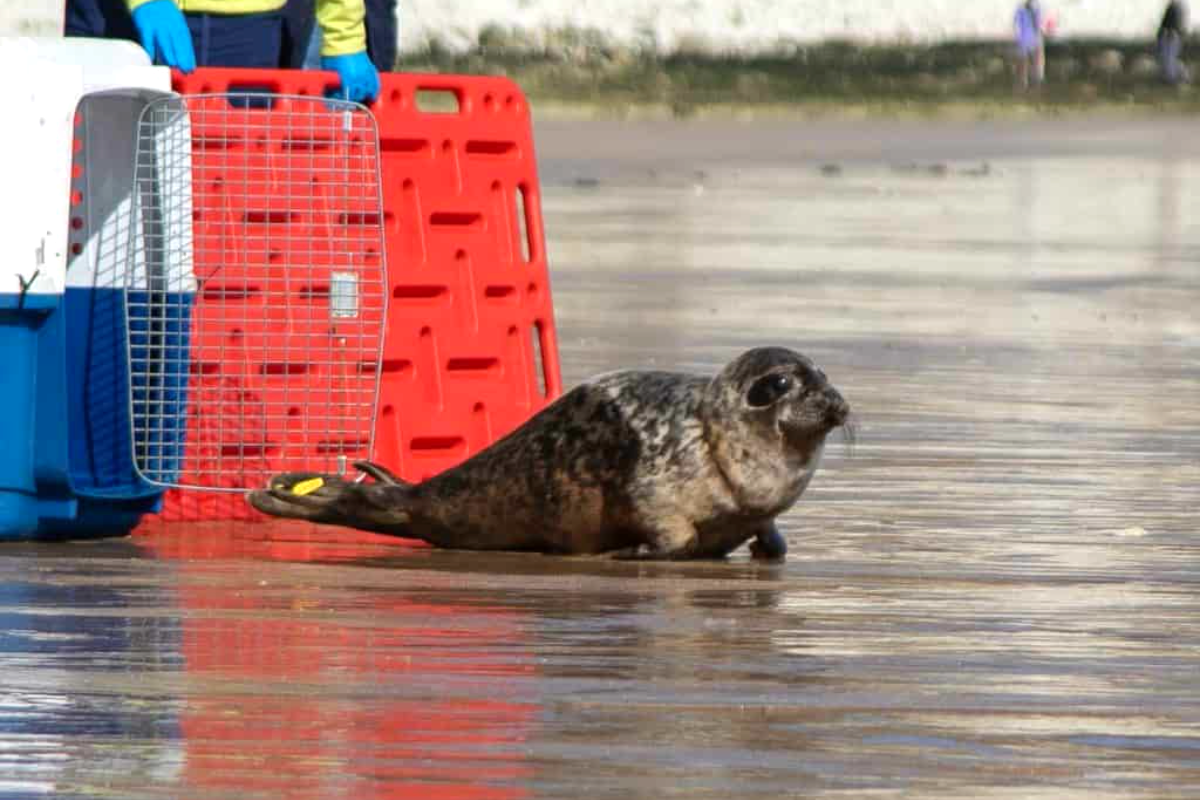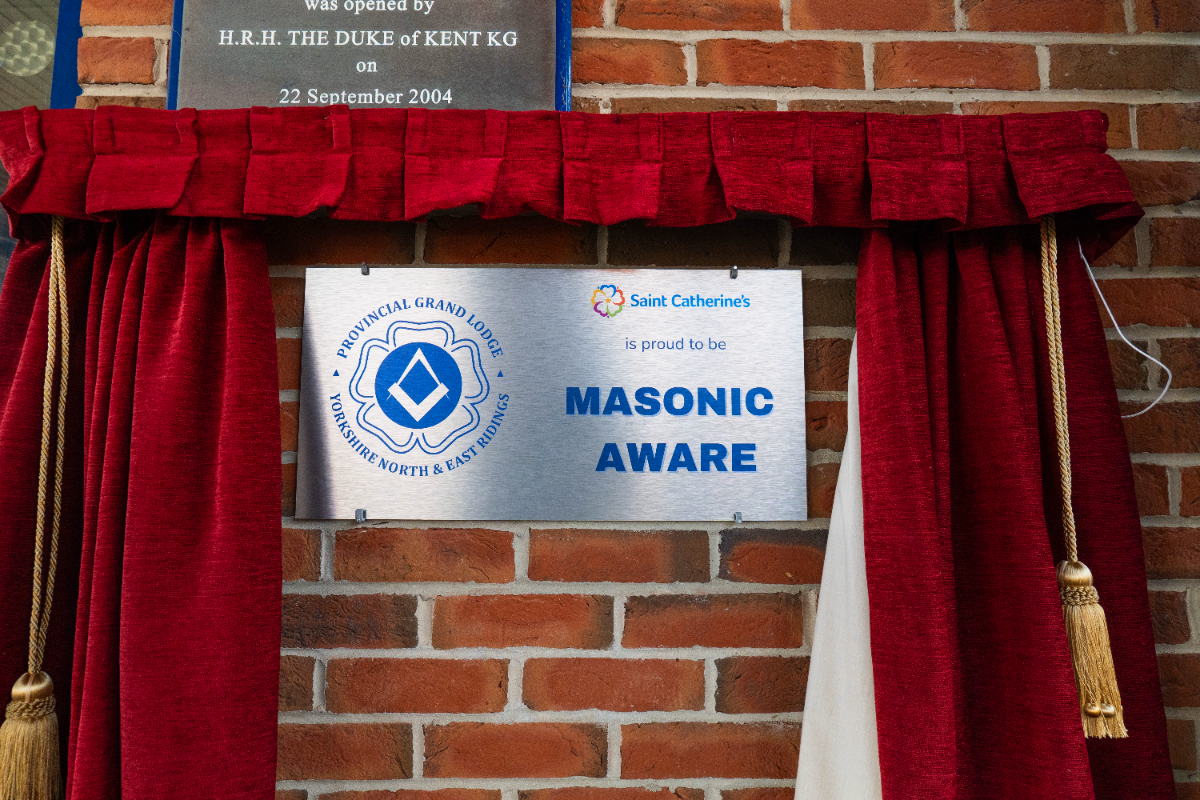
The Mulgrave Estate in the North York Moors has completed a pioneering £20,000 wetlands project which will enhance biodiversity and nurture wildlife on its land.
The 15,000-acre estate has transformed some of its working farmland into wetland habitats which are now creating a brighter and safer future for wetland birds, dragonflies, damselflies, amphibians and invertebrates such as diving beetles, backswimmers and pond skaters.
The estate has built brand-new and inter-connected conservation ponds at Lythe and Goldsborough, near Whitby.
It comes in the wake of the influential report by Sir John Lawton, which criticised England’s wildlife sites and ecology policy for not promoting a coherent, joined-up and resilient ecological network.
John Beech, Assistant Rural Surveyor with the estate, explained:
“This is an extremely significant project for us, which is very close to our hearts. With the generous support of the North York Moors National Park Authority, we have been able to create brand-new ponds, which are linked to each other by wildlife corridors.
“Over the past two years, we have built 11 new ponds in the Lythe and Goldsborough area of the estate, which have transformed, and are transforming, the ecological balance there. It is magnificent to see.
“There is generally a lack of open freshwater sites across the estate, which has made it very difficult for wetland birds and other wetland species to flourish. The ponds we have created are used as breeding sites for amphibians and, as such, are having a major influence on populations in the area. That has had a knock-on effect on the whole character of the estate, which we needed to address.
“Healthy, high-quality wetlands store carbon and slow the flow of water, cleaning it naturally and reducing flood risk downstream. They support an abundance of plant life, which in turn provide perfect shelter, nurseries and breeding grounds for all kinds of wildlife.
“At the Mulgrave Estate, we believe very strongly that we are the guardians of our land, which is a crucial responsibility. It is vitally important that we create a sustainable environment for every single species of wildlife here. This wetlands project has done exactly that, demonstrating that nature is a wonderful friend when you let her be.”

The project has been supported by the North York Moors National Park Authority as part of its role to deliver Landscape and Ecology projects to offset the impacts of the Anglo American Woodsmith Mine development.
Mike Hawtin, the head of Nature Recovery Projects at the authority, commented:
“We’re delighted to have been able to support Mulgrave Estate in their drive to enhance biodiversity through pond and wetland creation across their land.
“This is one of several projects delivered with the Estate and is a great example of how the National Park is working with landowners to help deliver positive outcomes for nature. It’s also part of a much bigger picture of landscape and ecology works taking place across the North York Moors which are designed to help offset the impacts of the Woodsmith Mine development.”
The Mulgrave Estate has been the Marquis of Normanby’s family seat since the 18th century. The Marquis himself is a keen conservationist, with a special interest in sustainability and woodland conservation.





 Injured Yorkshire Coast Seal Back in the Water
Injured Yorkshire Coast Seal Back in the Water
 Flamingo Land Welcomes Baby Giraffe
Flamingo Land Welcomes Baby Giraffe
 Scarborough and Whitby MP to Launch Petition for Return of Stroke Services
Scarborough and Whitby MP to Launch Petition for Return of Stroke Services
 UK Mayors Being Urged to Buy Scarborough Buses
UK Mayors Being Urged to Buy Scarborough Buses
 Free Music Events in Scarborough to Raise Funds for Andy's Man Club
Free Music Events in Scarborough to Raise Funds for Andy's Man Club
 Scarborough's Cross Lane Hospital Receives Heartfelt Gift
Scarborough's Cross Lane Hospital Receives Heartfelt Gift
 Saint Catherine’s Becomes First UK Hospice to Launch Masonic Aware Initiative
Saint Catherine’s Becomes First UK Hospice to Launch Masonic Aware Initiative
 Candidates Confirmed for First Scarborough Town Council Elections
Candidates Confirmed for First Scarborough Town Council Elections
 Scarborough Station Set for Multi-Million-Pound Roof Renovation
Scarborough Station Set for Multi-Million-Pound Roof Renovation
 Renewed Appeal Following "Shocking" Arson in Whitby
Renewed Appeal Following "Shocking" Arson in Whitby
 Six Candidates Standing to Become First Elected Mayor of Hull and East Yorkshire
Six Candidates Standing to Become First Elected Mayor of Hull and East Yorkshire
 Construction to Start on Whitby Maritime Hub
Construction to Start on Whitby Maritime Hub








Comments
Add a comment